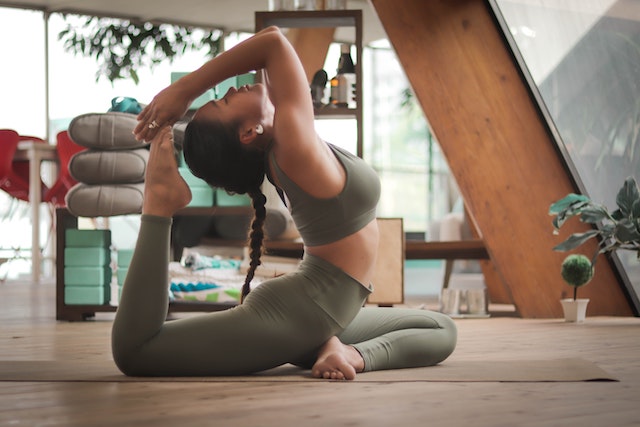by Christina Wilson
The topic of alcohol and health is a complicated one because its impact on any one individual is personal and multifaceted. Alcohol affects people metabolically, neurologically, socially, and physiologically. Awareness of what effect alcohol consumption has on you will help you make the right choices for yourself. While moderate alcohol consumption has been reported to have some potential benefits, this is also a nuanced discussion. Some choose to experiment removing alcohol for a few weeks to see how it affects their overall health and well-being. For some, when weight loss is a goal, removing alcohol often moves the needle. Alcohol consumption can affect blood sugar and insulin in complex ways depending on the dose. So, while a glass of wine with dinner may not be a big deal, 3 beers on an empty stomach at happy hour might not serve you well.
Alcohol (ethanol) is a toxin and your liver will prioritize metabolizing it. Things to take into consideration are volume, what the alcohol is mixed with, and the impact of the decision-making process, i.e. the late-night binge after consuming too much alcohol.
How Alcohol Affects Blood Sugar
When you consume alcohol, your liver prioritizes breaking it down before anything else. This process influences blood sugar levels in several ways:
-
Initial Spike and Drop: Alcohol often causes a quick spike in blood sugar as it’s metabolized. However, your liver becomes overwhelmed processing alcohol and cannot release glucose effectively, which may result in a drop in blood sugar.
-
Insulin Sensitivity: Moderate alcohol consumption can temporarily improve insulin sensitivity, allowing cells to absorb glucose more efficiently. However, excessive or long-term drinking can lead to insulin resistance, increasing blood sugar levels and contributing to chronic health issues.
The Caloric Impact of Alcohol
Alcohol contains 7 calories per gram, making it more calorie-dense than protein (4 calories per gram) but offering little nutritional value. This means alcohol can leave you feeling hungrier rather than satiated.
Additionally, because the body prioritizes metabolizing alcohol over other macronutrients, drinking can disrupt weight management efforts. The effects of alcohol consumption on blood sugar and metabolism can last for up to 12 hours, potentially impacting glucose levels and fat-burning processes overnight.
Tips for Smarter Alcohol Consumption
If you choose to drink alcohol, these guidelines can help mitigate its effects on your health:
-
Practice Moderation: Stick to moderate consumption—up to one drink per day for women and two drinks per day for men.
-
Watch Your Mixers: Be mindful of sugary cocktails, high-carb beers, and sweet wines, as these can quickly raise blood sugar levels.
-
Don’t Drink on an Empty Stomach: Pair alcohol with protein or fat to stabilize blood sugar. For example, snack on olives or vegetables with hummus.
-
Monitor Your Blood Sugar: If you have diabetes or are at risk of hypoglycemia, regularly check your blood sugar before, during, and after drinking.
-
Stay Hydrated: Drink water alongside alcoholic beverages to counteract dehydration. Adding electrolytes can further help maintain balance.
-
Explore Low-ABV and Non-Alcoholic Options: The rise of mocktails and low-alcohol-by-volume (ABV) cocktails offers alternatives for those looking to reduce alcohol intake. These beverages provide the social experience of drinking without the associated health risks. The market for non-alcoholic drinks has grown significantly, with many establishments offering creative and flavorful options.
Final Thoughts
Alcohol is a toxin that affects your body in multifaceted ways. Its impact on blood sugar, insulin sensitivity, and metabolism highlights the importance of drinking mindfully. By making informed choices and prioritizing moderation, you can enjoy alcohol while minimizing its potential drawbacks.
Related Posts

What Is NEAT and Why Does It Matter?
When most people think about burning calories, they picture intense gym sessions...
Read More
I was rich, if not in money, in sunny hours and summer days -Henry David Thoreau.
While a daily dose of sunshine is h...
Read More
Because of its long path through the human body, the vagus nerve has been described as the “wanderer nerve.” The va...
Read More
The liver is our primary detox organ. It is in charge of making toxins less dangerous through biochemical processing ...
Read More
Incorporating stretches into your daily routine is beneficial in so many ways. Stretching is instrumental in improvin...
Read More
Uncorking the wine bottle or having a few beers is the way that many people “unwind”. While this seems like a great w...
Read More
If this last two years have taught us anything it is that COVID affects each of us differently and our immune systems...
Read More
Whether we are ready for the holidays or not, they are here!! That means a time for family gatherings, great food, fr...
Read More
I recently did a juice cleanse in which you drink one gallon of juice per day for a two day period. The two gallons o...
Read More
Fitness challenges are a great way to stay in shape during the Summer. Here are some great fitness challenges to look...
Read More

Christina Wilson
Author